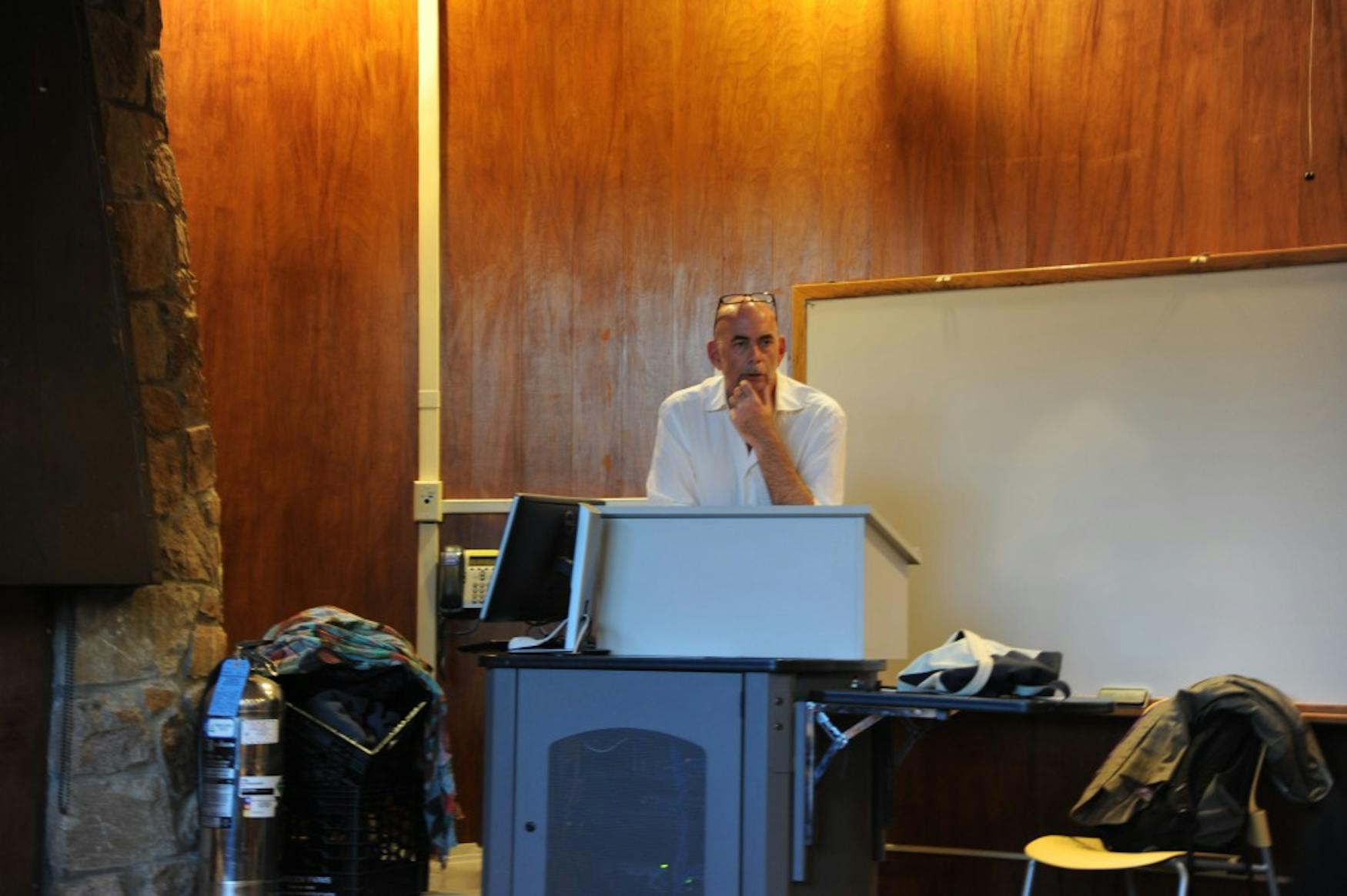Antrim performs in ‘School of Night’ reading
He worked in publishing for a couple years in New York in the ’80s, and his boss was always calling him into his office about something. One day, after he referred to someone whose book they were planning on publishing as a novelist, his boss said, ‘“Come in here! he’s not a novelist. ... a novelist is someone who has dedicated his or her life to the pursuit of this artform.’ At the time I thought that was curmudgeonly and old-school, but now I see the wisdom in it,” said Donald Antrim.
On Thursday, Oct. 6, best-selling author and MacArthur fellow Antrim reflected on his career, spoke about other related topics and read his short story at an event hosted by the School of Night and the University’s Creative Writing Department. It was an intimate affair that featured a strong contingent of undergraduate students among others from the community. The reading was held in Pearlman Lounge and is part of a series hosted by the School Of Night, dedicated to bringing prolific writers on campus.
Before the reading, Prof. Dawn Skorczewski (ENG) offered a brief introduction to the author’s career. Antrim received a McArthur fellowship for his work in 2013, a milestone in a rich literary career. He has authored three novels, “Elect Mr. Robinson for a Better World,” “The Hundred Brothers” and “The Verificationist,” as well a memoir about his mother titled “The Afterlife.” He received a bachelor’s degree from Brown University in 1981 and currently teaches graduate students in the MFA program at Columbia University.
Antrim decided to read the title story from his collection of short stories, “The Emerald Light In The Air,” published in 2014. The New Yorker has published each of the stories included in the collection between 1999 and 2014. His manner of reading impressively contributes drama without taking an overly grandiose tone. The effect mirrors the plot nicely —a mournful and strange tale of one Billy French driving into the woods to throw away murals painted by a lost love.
The narrative flips between his adventures down a creek muddy in the aftermath of a storm and flashbacks to conversations with loved ones. Although the story sharply hones in one man’s experience, the listener cannot help but feel that something big is in the works. Part of this comes from the generational aspect of the protagonist. The author evokes the significance of thi legacy in one important way—using small details about his family. He drinks his mother’s drink, for example, and he drives his grandfather’s car. The weather also adds suspense, the slow way another storm creeps up on him one raindrop at a time.
The story takes a surreal turn when French crosses paths with a boy in the woods about ten minutes into the story, dredging him out of his nostalgia and more fully into his immediate experience. Antrim put on a rural accent while voicing the parts of the boy.
Overall, the story rang authentic with its no-nonsense prose and carefully selected details that bring the story from a place of utter loss to something close to redemption.
After the reading, audience members were invited to enter into conversation about his work. One the first questions involved whether the clouds in Antrim’s story had metaphoric value and whether the metaphor was intentional. “I’m not really concerned so much with whatever the story means coming through my intentionality,” Antrim responded. “I’m engaged in trying to build a concrete world rather than make ideational connections. ... That’s how I’ve come to think of symbolic meaning — something that exists in spite of the writer and can be managed by the writer but is not necessarily interpreted by the writer.”
Toward the end of the event, Antrim reflected on his evolution from the kind of writer who anxiously anticipates his finished products to one more preoccupied with the process itself. He said “I got to a point — and I hope you get to this point — a point at which it wasn’t something anymore for me to finish or resolve or get rid of or wrap up or pull double all-nighters with. It was something to live in and it was making my life better.”




Please note All comments are eligible for publication in The Justice.